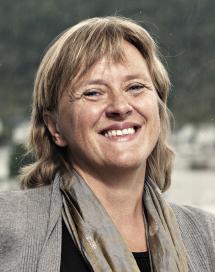LawTransform invites all interested to a seminar that will discuss the democratic costs of corrupted social capital with experts in the field.
Willeke Slingerland (Saxon University of Applied Sciences) and Lise Rakner (UiB/CMI/LawTransform) in conversation with Tina Søreide (NHH/LawTransform).
In countries all over the world there are examples of large infrastructure projects being built bigger than necessary with huge cost overruns as the result. While there might be insufficient basis for alleging corruption, the individuals representing different stakeholders – including government, construction companies, financial institutions and more – often know each other. They might have been friends for a long time, for example because they were educated in the same school.
Friendship across players involved in large projects – whether it is an infrastructure project, a government program, or an ambitious academic research agenda that involves funding – is sometimes considered decisive for initiatives to get started. At the same time, there is an obvious risk that friends benefit each other at the expense of society.
When does friendship between decision-makers become a problem? Can we rely on our various integrity measures in governance to prevent collusive forms of friendship from becoming a threat to political aims in society? A highly relevant question is when and to what extent such networks might threaten even democratic institutions? These are the key concerns that motivated this breakfast event.
Willeke Slingerland is a professor (lector) of Government, Markets and Society at the Saxon University of Applied Sciences, School of Governance, Law & Urban Development. Her research focuses on network corruption, corporate responsibility, ethics and good governance. Willeke has worked as the Corruption Correspondent for The Netherlands, thereby reporting to the European Commission on corruption developments. She was also the lead researcher for Transparency International’s Nation Integrity System Assessment on the Netherlands.
and Society at the Saxon University of Applied Sciences, School of Governance, Law & Urban Development. Her research focuses on network corruption, corporate responsibility, ethics and good governance. Willeke has worked as the Corruption Correspondent for The Netherlands, thereby reporting to the European Commission on corruption developments. She was also the lead researcher for Transparency International’s Nation Integrity System Assessment on the Netherlands.
Lise Rakner is a Professor of Comparative Politics, University of Bergen, Senior Researcher at Chr. Michelsen Institute and the research leader of the Democracy & Law unit at LawTransform. Her research focuses on the issues of democratisation and human rights, economic reform, taxation, institutional change and international aid, with a particular emphasis on Southern and Eastern Africa. Rakner has served as consultant for NORAD, SIDA, DFID, the World Bank, and the Norwegian Ministry of Foreign Affairs.
Senior Researcher at Chr. Michelsen Institute and the research leader of the Democracy & Law unit at LawTransform. Her research focuses on the issues of democratisation and human rights, economic reform, taxation, institutional change and international aid, with a particular emphasis on Southern and Eastern Africa. Rakner has served as consultant for NORAD, SIDA, DFID, the World Bank, and the Norwegian Ministry of Foreign Affairs.
Tina Søreide is a Professor of Law and Economics Department  of Accounting, Auditing and Law Norwegian School of Economics and the research leader of the Corruption & Law unit at LawTransform. Her research is focused on corruption, governance, markets and development, currently with an emphasis on law enforcement. Søreide has been engaged in policy work for the Norwegian Government and internationally, including for the OECD, the EU, the World Bank, development agencies and governments.
of Accounting, Auditing and Law Norwegian School of Economics and the research leader of the Corruption & Law unit at LawTransform. Her research is focused on corruption, governance, markets and development, currently with an emphasis on law enforcement. Søreide has been engaged in policy work for the Norwegian Government and internationally, including for the OECD, the EU, the World Bank, development agencies and governments.
Coffee and croissants will be served.
Free and open to all!
The seminar is hosted by the LawTransform units Corruption & Law and Democracy & Law and in cooperation with the Norwegian School of Economics (NHH).
